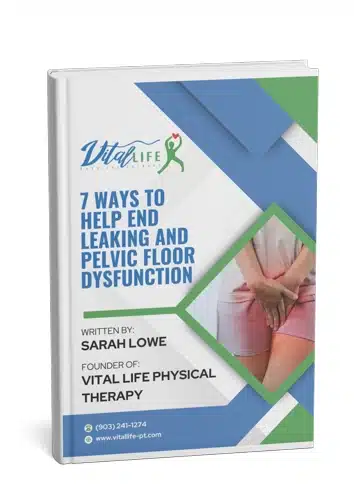Here are some of the most common pelvic health myths people who visit our Longview clinic have been told, which have actually hindered their rehabilitation progress and delayed their recovery from pelvic pain.
I understand how distressing it can be to experience pelvic pain or other pelvic health issues that prevent you from staying active or participating in the activities you love. You may have tried different approaches in the past that didn’t work, leaving you unsure of where to turn next. I would love to help you find clarity and relief through a quick, Free Telephone Consultation.
Simply click the button below to arrange a Free Telephone Consultation. I’ll listen to your story, answer your questions, and help you overcome the uncertainty, confusion, and frustration surrounding your pelvic health challenges. Together, we can take the first step toward a healthier, pain-free life.
Simply Complete The Short Form and We’ll Email You Your FREE GUIDE

Are you unsure if Physical Therapy is right for you? Would you prefer to talk with an Physical Therapist before making a decision? All you have to do is click the link below to fill out a simple form.
If you’re not quite ready to book an appointment yet and have some questions you would like answered first, click the link below to complete the form.
4140 Tryon Rd, Longview, TX 75605
Monday – Friday8:30am – 3:00pm
Saturday – SundayClosed
Hosting community workshops to educate attendees on pelvic health.
Word of mouth referrals throughout Longview thanks to my reputation in the community.
I have written articles that have been featured in the Neighborhood Magazine.
To speak to Longview’s Pelvic Health Expert, Sarah Lowe, call (903) 241-1274
Or Request Your FREE Pelvic Health Guide